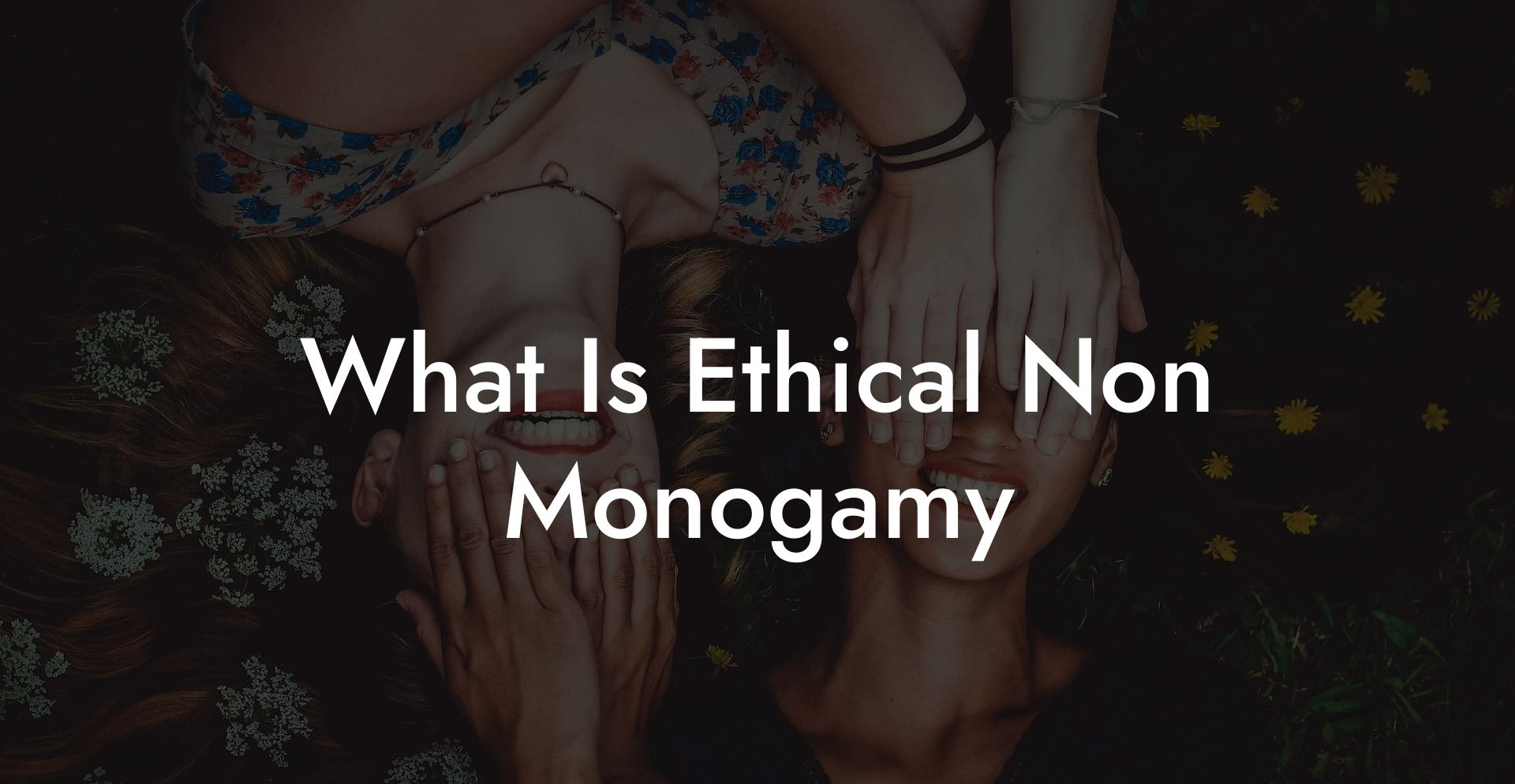Ethical non-monogamy is a term that you may have come across in recent years. Society is evolving, and with these changes comes a more open discussion about relationships and the various structures they can take. In this guide, we will delve into what ethical non-monogamy truly is, what it entails, and how it might differ from monogamy. We will also explore how it compares to other relationship models like polyamory. So sit back, relax, and let's expand our understanding of this unique and beautiful concept.
What Is Ethical Non Monogamy Table of Contents
What is Ethical Non-Monogamy?
Ethical non-monogamy is an umbrella term for a variety of relationship styles that involve more than two partners. The core principle of ethical non-monogamy is that all parties involved are fully aware and consensual, maintaining open communication, honesty, and mutual respect. It is the opposite of traditional monogamous relationships where exclusivity is expected.
Types of Ethical Non-Monogamy
Below are some examples of ethical non-monogamous relationships, though this is by no means an exhaustive list:
- Open relationships: Couples choose to maintain their romantic and emotional connection, while allowing each other to engage in outside sexual experiences.
- Swinging: Couples engage in recreational sexual activities with other couples or individuals, often at organized events or clubs.
- Polyamory: The practice of having multiple intimate, loving relationships concurrently, with the full knowledge and consent of everyone involved.
How is it Different from Monogamy and Cheating?
The line between ethical non-monogamy and cheating is clearly drawn: consent, communication, and transparency. While ethical non-monogamous relationships embrace the idea of multiple partners, cheating is a betrayal of trust and communication in a monogamous agreement. Ethical non-monogamy stands tall on the foundation of trust, boundaries, and negotiation.
Monogamy, by definition, is an exclusive relationship between two individuals. It is still the most widely practiced relationship structure, but more and more people are exploring non-monogamous options.
Navigating Ethical Non-Monogamy Challenges
Like any relationship style, ethical non-monogamy comes with its challenges:
- Jealousy: Addressing insecurities and focusing on open communication is essential to navigate jealousy healthily.
- Time management: Balancing multiple relationships can be a challenge. Making sure each partner gets quality time is crucial.
- Negotiating boundaries: As each individual has unique needs and boundaries, maintaining transparent conversations and negotiating boundaries is essential.
What Is Ethical Non Monogamy Example:
Jane and Tom have been engaged in a loving monogamous relationship for eight years. Lately, they have discovered an interest in the idea of exploring ethical non-monogamy. After having open discussions about boundaries, desires, and concerns, they decided to start by joining a local swingers club. By attending events together and sharing their experiences, they maintained trust and communication in their relationship. As their journey progressed, they eventually found themselves in the realm of polyamory, falling in love with another couple and establishing a deep, intimate bond with them. Throughout the process, the focus was on honesty, consent, and respect for each other.
As we explore the vast relationship landscape, it's crucial to remember that no one size fits all. Ethical non-monogamy presents a world of possibilities for those seeking connections beyond the traditional monogamous structure. By remaining open to new experiences and embracing honest communication, we can build unique, meaningful, and deeply fulfilling relationships that cater to our individual desires. If you found this guide helpful, don't hesitate to share it with others who may be interested in ethical non-monogamy. Remember, The Monogamy Experiment is here to provide all the insights you need to navigate the relationship spectrum!













